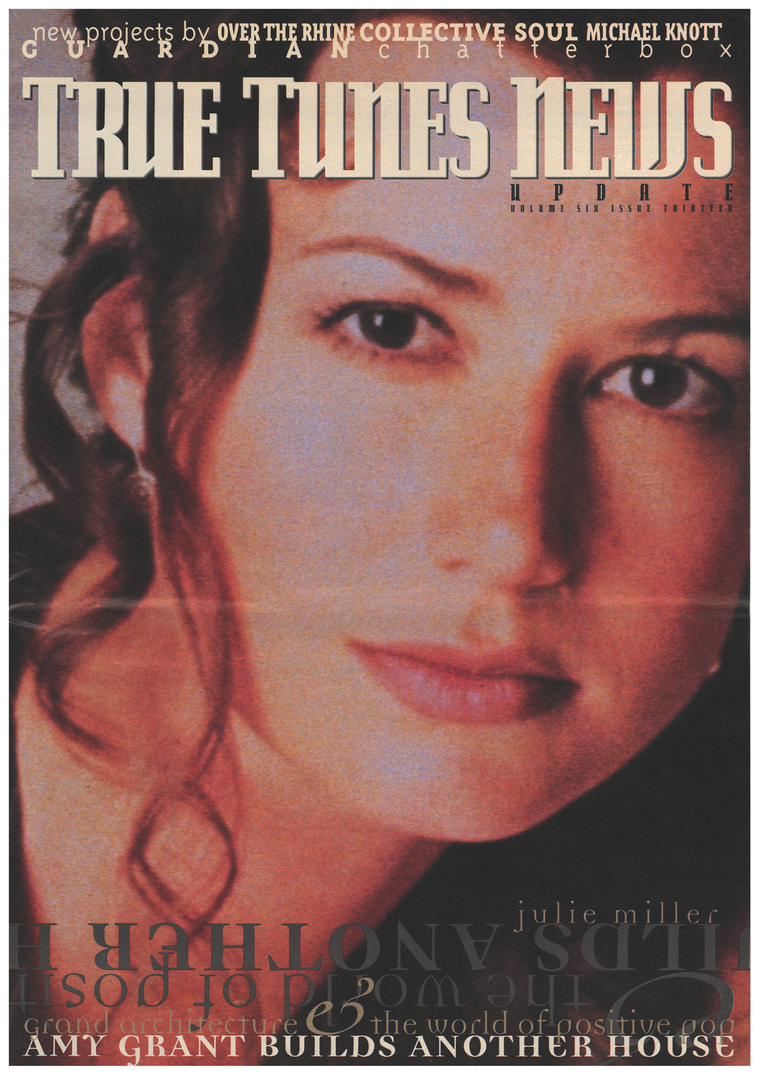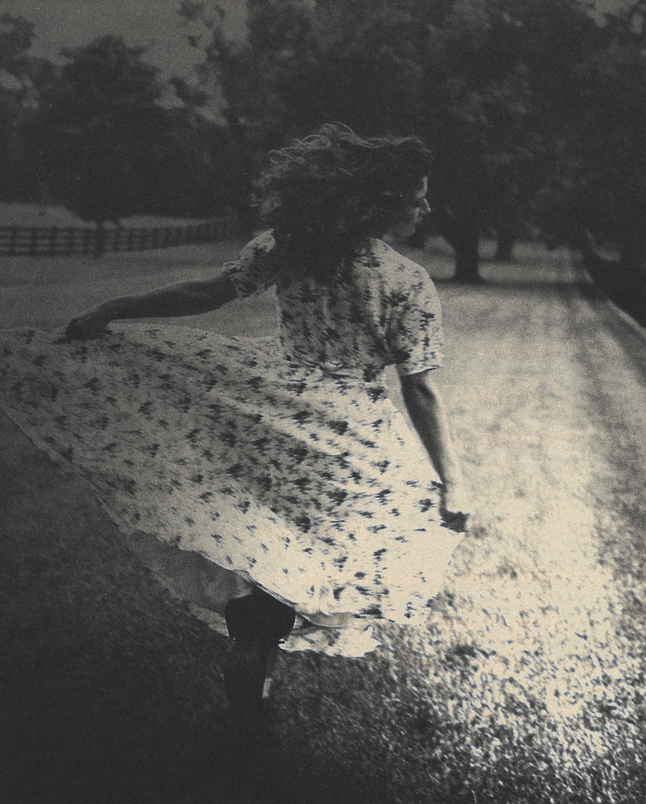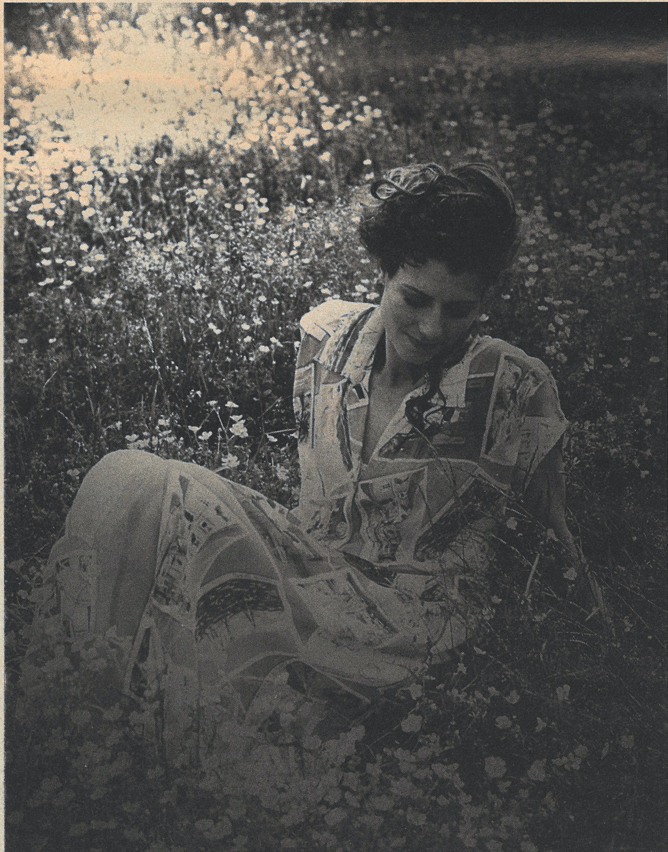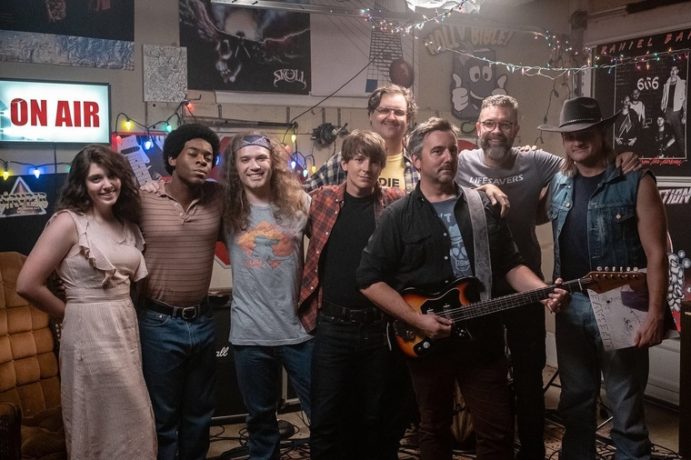True Tunes’ 1993 Interview w Amy Grant

Grand Architecture and the World of Positive Pop (1993)
[Presented here with only minor edits to fix punctuation and style errors, and to clean up the ending, is the original Amy Grant feature as written by a 23-year-old writer and published in Volume 6: Issue 13 of True Tunes News in 1993. While certain aspects of the interview make me cringe a bit, it is clear that I was still bewildered by the supposed controversy surrounding Grant, and the general witch-hunty-ness of the evangelical subculture I had found myself in. It is also clear that Amy, nearly three decades ago, was a far more eloquent interview subject than I was an interviewer. That much has not changed. The ending, I think, is particularly powerful in light of history. -JJT]

Whatever your opinion of her music, there’s no denying that Amy Grant has had a more profound impact upon Christian pop music than has almost any other artist. After more than a decade of service to a sub-culture that seemed as though it were doomed to die as small and as lonely as it had been during its short existence, Grant hooked the CCM scene to her enlivening I.V.
In 1984 the complaints started coming in. Not surprisingly the controversy began around the time Grant released her Unguarded album. With her obvious dance pose on its cover, and with its disconcertingly accessible subject matter, Unguarded re-defined what Christians could accomplish in the realm of pop music. Accompanying the controversy/complaints were rumors of extra-marital affairs, as well as the old standby, “She’s not a Christian anymore, just look at her…”
While many people would have thrown in the towel, or succumbed to the pressure, Amy Grant stayed her course. In the years following, she released a best-of collection (The Collection), and her most musically adventurous album to date (Lead Me On). But it wasn’t until 1992 that the earth really began to shake. Whereas Amy’s other albums had been benchmarks for Christian music, Heart In Motion was a mainstream pop phenomenon. With an obvious sense of resolve, Amy proceeded to take on the pop music world, and she won,
Of course, some were certain that Grant had probably compromised her Christian integrity in order to have made it that far, and such people have made up a variety of rumors to back up their superstitions. But the whole thing amounted to no more than a blip in the ever-increasing wave of support for everybody’s favorite “Girl Next Door.”
With sales in excess of five million copies, Heart In Motion established Grant as a genuine star. And as news of her soon-to-be-released follow-up to that album spread, no one knew quite what to expect. Would she repeat the successful steps that made Heart In Motion household words?
The answer to that depends upon the expectation of individual listeners. Her latest, House of Love, is a lot of things. It’s a bit more mature-sounding; it’s a bit more personal, lyrically; and it’s a bit less evangelical than any of her previous work. Once again, Amy Grant has set her own stage and she seems to be doing exactly what she wants to do… Shame on her!

John J. Thompson: After everything was said and done, do you feel that Heart In Motion accomplished what you wanted it to?
Amy Grant: Well, from a widespread acceptance level it absolutely surpassed any hopes or dreams I ever had for it. You know, I was turning 30 when I put that record out. I felt like I’d given my best years to contemporary Christian music. From a creative standpoint, I was just wanting so much to do something different. It had nothing to do with my faith growing or diminishing, It had to do with just wanting to try something different.
Anyway, you’re right. At some point in time, I did say, “A conversation that’s happening about me in a board room or in a dorm room on the other side of the country, the other side of the city, does not really have any impact on my life. And so I’m just going to have to do things that I’m compelled to do because I don’t have anybody else’s agenda available to me.
You once said that you have nieces and nephews and kids in your life who never would have come across your music because they were not listening to Christian radio stations or shipping in Christian book stores. And you said you wanted to make something they might listen to, that might speak to their lives and encourage them, Did these nieces and nephews end up hearing you?
You know, it’s interesting. I look back at the process of putting Heart In Motion together and I guess that felt like my swan song, because a 30-year-old suddenly kind of stuck another engine on this thing I never thought I’d be doing anyway – singing. But I remember at the time kind of going, “Now, if I were going to do a pop record, what would I do?” And I felt that with Heart In Motion I was trying so hard to get my bearings straight. I felt like I’d jumped into this huge ocean and I was just trying to find a rudder.
Anyway, I finished House Of Love and I had to be out of town, so I had two nieces stay with our three children. And they’re fabulous. They’re 16 and 17, and very trustworthy. And I figured they could handle three children. Plus the grandparents of all the kids live on the farm.
So when I got back I said, “So, how was life with three kids?” And they said, “A: A great form of birth control. B: How fabulous to wake up in a house and fix coffee.”
One of them was toting her guitar, she was packing her car to leave, and she said it just felt so good to feel some independence. She said, “Every night we watched movies. We played with the kids. We put them down. We listened to music. And I’ve got the best new tape in the world.” And she picked up the Indigo Girls’ new tape, and she said, “Have you heard this? It’s so fabulous!” And I said, “Yes, it is wonderful.” And she said, “Best tape around.” And then she kind of got this sheepish look on her face and said, “Excepting yours!”
(Both laugh)
And I said, “You know, Ginger, the fabulous thing about this is that you don’t have to like what I do – because I’m your aunt and you’re stuck with me!
And even that feeling I had with the last record, of saying, “I want to do something the kids in my family will appreciate,” I think even that’s dissipated. I guess we’re all made to do what we do. And the point is doing it. The point is not the reception it receives. And that is freeing.
I’ve had countless people come to me saying, “I really feel I’m supposed to be doing what you do. How do I get started?” And it’s just an overwhelming task to try to think of something intelligent to say. But it’s so great to say, “Do what you think you’re supposed to do. Just do it.” That’s your only responsibility – to do it.
Beyond that, beyond where it goes or where it takes you, beyond pulling the strings you know to pull and pursuing the road you know to pursue, and exhausting the possibilities beyond that, you know you can put your head on the pillow at the end of the day and say, “I did what I was compelled to do.”
House of Love sounds, to me, markedly more adult. It doesn’t have a “Baby, Baby” on it or an “Every Heartbeat”. It sounds a little bit more adult contemporary – by traditional standards. Is the maturity of House of Love a conscious decision to focus on a new sound or is it just the gut-level outpouring of where you’re at right now?
I’d say it was the gut level. Just trying to be myself. You know, if I sit back and really study it, which I have to admit I don’t, but if I do, then I think there’s probably a real intrigue with saying, “This worked before. Being the girl in ‘Every Heartbeat’ worked before. Maybe I can be her again and again and again.” But my gut tells me, “Be who you are right now.”
At some point, when you’re 45 and you’re trying to squeeze into a polka dot dress, you’re going to feel absurd.
(Both laugh)
And if you don’t believe so, just look at the latest Patti LaBelle video.
Yes. Just allow the natural progression of life to take you where it’s going to take you.
Do you expect there to be any controversy or criticism within the evangelical subculture regarding the songs on House of Love? Is that something you even considered while you were putting it together?
I don’t expect anything because there’s not anything in that material that throws up any red flags to me.
They seem to be able to find stuff though. It’s like they’ve got some sort of detector. I can’t understand it. I mean, I listen to Heart In Motion and I don’t hear anything, yet people whine and complain.
It’s interesting. Gary [Chapman] and I were talking the other morning. I was about a week away from participating on a Carole King compilation record. Actually, they’re redoing the “Tapestry” album. And they asked me if I would do the song “It’s Too Late.”
Oh, wow!
I love that record. I’ve already done it at this point. And Gary and I got into this deep philosophical conversation about doing a song like that. And he said, “I just think it’s worth considering that this is a relationship that’s ending.” And we kind of went back and forth. He played the conservative side, and I played the other side. I mean, we were just dis-
cussing it, because I was already doing it. But I just said, “Have we really confused the issue?”
I remember doing a chapel program when I was 16 years old, singing Christian songs that I’d written and interspersing them with other songs. And one of the songs I interspersed within the Christian songs was “Will You Still Love Me Tomorrow?” Well, I was 15. I’d never had sex! I’d never spent time with a boy! I’d never. But, somehow, just in the whole wash of musical life, that didn’t pose any conflicts to me at all. It was just a beautiful song. And fun to sing. And I could actually play it on guitar.
So Gary and I were talking, and I said, “At what point in time did we have to become the Lyric Police?” I mean, is it because we are the makers and sellers of music that suddenly we’re the police? Can’t we just say, “It moves me. It’s really pretty. But it’s not my life experience”?
I think different people toe different lines with that. But it’s just food for thought. And it’s probably a very boring conversation for somebody who’s not in the music business or who’s not a Christian in the entertainment business.
Well, for instance, take your contribution to the Honeymoon in Vegas soundtrack. An Elvis song: “Love Me Tender.” There’s nothing immoral or anti-Christian about it. Yet people were going, “Elvis!?! How can you do this!” A painter is not limited to only painting pictures about his life, is he? The same thing goes for the Heart in Motion videos. They didn’t reflect your life, that’s not what is called for in a situation like that. And I think you’re right in saying at some point, “I’ll just do it because I like the song.” But it’s interesting to hear that you guys discuss that kind of thing,
that you don’t have a devil-may-care attitude.
Have you had much to do with the creative part of the videos for the new stuff?
Well, the basic idea is usually generated by the director, that’s why he gets the job. He comes up with a treatment that’s pleasing. And sometimes I don’t really have an opinion. I mean, for “The Lucky One,” a woman came up and said, “I really want to focus on a visually pleasing piece. Amy’s going to be in the video with children. And part of it will be at the beach. A lot of bright colors.” I appreciated that it wasn’t a couple thing, because that’s just not a fresh approach.
A couple of weeks later I did the “House of Love” video, and my initial desire for that was that it be in black and white. But that was as far as I thought about it. And a director came up with an idea that I liked. Anyway, I’m superimposed down in the dirt. I’m four inches tall. I haven’t seen how that one turned out. I mean, after you’ve done a truckload of videos, which I feel like I have done, [there are] a lot of old, really bad ones, and newer decent ones. I’m just looking for something that sounds interesting.
But that’s not really the focus. It’s not anywhere the focus like making the music is.
I guess that’s an example of the music business taking what you’ve done and running with it. Is that disconcerting at times? Or do you feel comfortable with that? It seems like you’ve achieved a level of success that allows you to do what you want to do. Then again, I’ve never seen a pre-release marketing blitz as big as the one for House of Love, it seems as though there are some more serious things there too: the connection with Habitat for Humanity, and the more mature sound. Do you worry about your message or your intention getting lost in that process?
No. I feel kind of comfortable with the old school of delegating. Give me the freedom to put the music that I want to put on a record, and release that as a record. And if the record company feels compelled to do a remix, well, you know, at least let me hear it.
And videos, sure, I understand that. That’s a part of pop culture, and they’re enjoyable, actually. It’s really an interesting process. I feel like my involvement with A&M has broadened my view of life, and it’s definitely broadened my world, experientially.
I had a listening party with all the people from Word Records for “House of Love.” It’s interesting because I’ve been with the same company I signed with when I was 15. There have been so many turnovers. I’ve been with the company longer than most of the people who work there.
(Laughing) You should apply.
“You wake up in the morning, you look at your commitments ahead of you, you rally. You find for yourself the things that are true, you start putting one foot in front of the other. Some days you make it through okay, and some days you don’t.”
That’s it. But that they’ve chosen to continue supporting me, even though the focus of the music has changed. Anyway, we had this listening party and somebody came up to me afterward and was talking about what the world has been through and what Christian music has been through, and about God really lifting me up and all this kind of stuff; and that it’s so great to be able to trust what I do. And I said, “Whoa! Hang on just a second. You need to know that of all people I think I know me best, and I am totally a loose cannon.” And I think that as long as I know that about myself, and that the people around me know it, and that God knows it, that we’re all in agreement on this, then we’re safe.

In what ways does that loose cannon manifest itself these days?
Well, true loose-cannon tendencies are not anything I would talk about in an interview.
Oh, Okay.
Those are just my own private struggles in life. You wake up in the morning, you look at your commitments ahead of you, you rally. You find for yourself the things that are true, you start putting one foot in front of the other. Some days you make it through okay, and some days you don’t. At the end of the day, there are people who are immediately around you who you’ve helped or who you’ve hurt, and all the media that happens beyond that circle is a moot point.
You just say, “God, be with us all.” And I think I laugh a whole lot the older I get because I realize the absurdity of life. If you can’t laugh about it once you’ve realized you can’t figure it out, you better start laughing. I had a conversation with two of my sisters by the pool the other day. A friend of one of my nephews was in a car wreck, and the friend was critically injured and her sister died. And I said, “Mimi, I pray, ‘Just let my kids live. Just let ’em live.’” And we were talking, you know, we have quite a large family, and Mimi said, “You know I know it’s going to happen to one of us. Somebody’s going to lose somebody, and we’re all going to have to deal with it.” And so we’re talking about it now because it will be easier than trying to talk about it then. I just want to say – bravely, at this point, not having buried anyone yet – let’s just remind ourselves that life is tough. It is tough. And we all know where we’re going, and is there not some small comfort in saying, “Whew, we know they at least made it safely to the other side”? I mean, they’re not going to have to deal with all the other issues that the rest of us have dealt with. It was just such an interesting conversation to have on a lazy Saturday afternoon hanging out. But it’s true. I think there are a few black and white lines in life, but most of the rest of it is incredibly gray to me, trying to figure out what to do and how to be.
It’s getting more real, and that’s what’s exciting to me. I didn’t like Christian music when I was young, specifically because I thought, “Gee, I don’t know what planet these people are from, but someone get me a ticket because everything sounds great. “
Yeah.
“…whether we succeed or fail in whatever agenda we have is not what sets our value. It doesn’t set our value in His eyes. He set it when He decided what we were worth – we were worth Jesus.”
Some people in your position might take the opportunity to become king of the hill. And I applaud your consistency and you’re saying that it doesn’t really mean a whole lot for us to compare ourselves to each other and talk about how victorious we are because we’re all putting each other on, you know? There is struggle and there is victory. I think Joe Everyman wants to know that he’s not dirty just because he has bad days.
Yes. You know, I’ve got a really good friend who’s totally committed to the Lord. And she’s been through some really hard times. And we were driving the other day in the car and she said, “You know what? I like loud rock & roll music. I like sex in movies. I cuss sometimes when I get mad. I like really fast cars. I like knowing that if the wheel should slip in my hands and I jerk it the wrong way, I might die, and it doesn’t really matter. And if I can combine that feeling of driving that fast, rock & roll, movies, and the sex, it would be absolutely nirvana to me.” She was making me laugh. We were going down the road and she’s like, “Ha, ha, ha, ha.” And she said, “At the point where you’ve been through all the youth group highs, and you’ve been through all the new wave of spirituality, at the end of the day you wake up and you say, I’m sticking with this because I want to die with this.’ To know who Jesus was: the character that builds. Because everything else gets old.” And it does.
Yeah, that’s for sure.
If I’m in a situation where I’m flailing with something or I’m uncertain about something, her voice is always in my ear: “Amy, choose character.” Of course, I’m yelling over the phone, “I don’t wanna choose character! I wanna satisfy an appetite! Get outta my face! Stop saying that to me!” But see, she’s a friend, and I know her and she knows me. And I’m accountable to her. And she’s not on the other side of the world talking in the church board room, talking about her opinion of me. She’s my buddy. And so that voice of hers, “If you make the right choice now, it’s going to be a lot easier to live with yourself when you’re 50.”
And I think there’s not enough discussion about… Well, I was talking to my mom, this must have been a couple years ago, and I said, “Will we ever be at the point in time where they dismiss the church and they say, “It’s time for
Sunday school classes. Now, 101 is Uncontrollable Adulterers. In building 102, Incest and Drug Abuse. (Starts to laugh) In 103 is Recovered Alcoholics. In 104 …'”
Non-recovered alcoholics.
Non-recovered alcoholics, yes! Exactly. The victorious, and the not-victorious. And all the elders and elders’ wives are leading the groups. And I said, “Is it ever going to be that way?” And my mom said, “Just don’t you start the trend, please!” (Still laughing) I said, “Okay!” I think you wake up and put one foot in front of the other, and be thankful God is with us and that all this is very familiar to Him. That’s really the good news. And whether we succeed or fail in whatever agenda we have is not what sets our value. It doesn’t set our value in His eyes. He set it when He decided what we were worth – we were worth Jesus.
(Short pause)
And that takes the pressure off.



